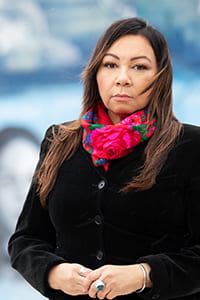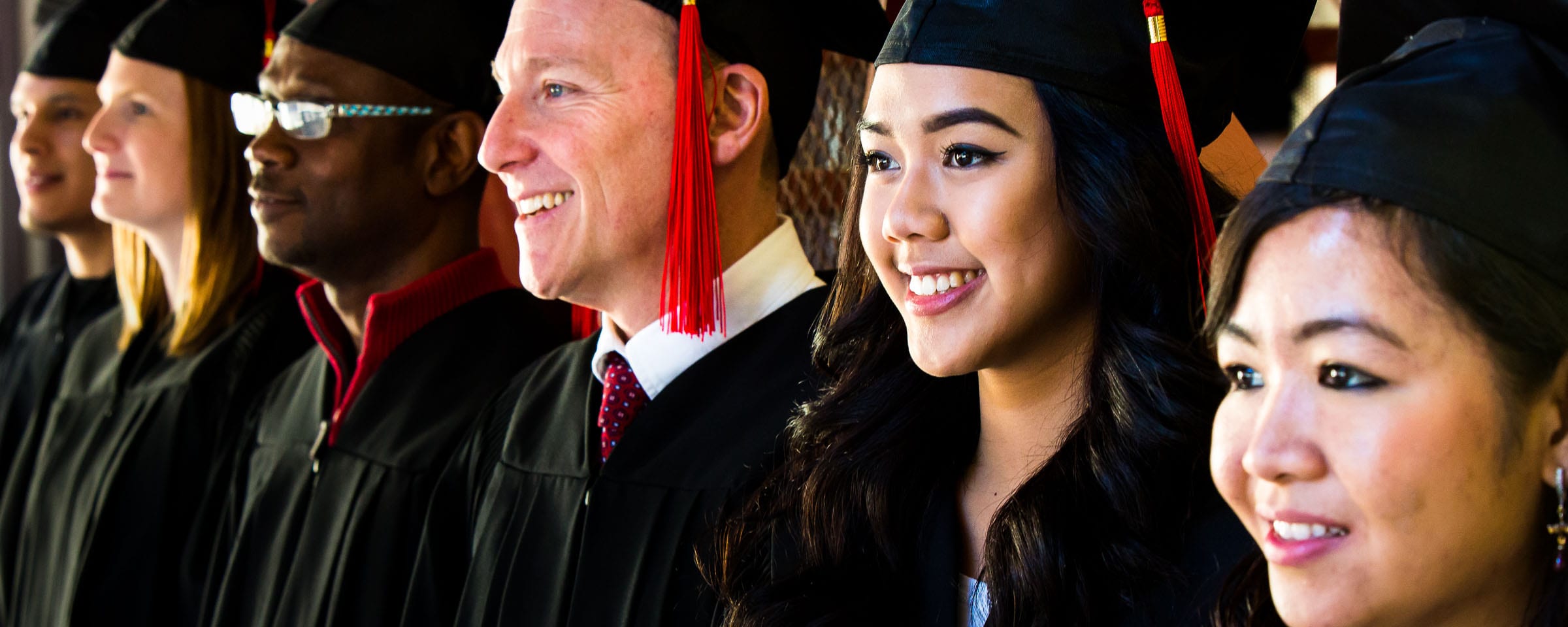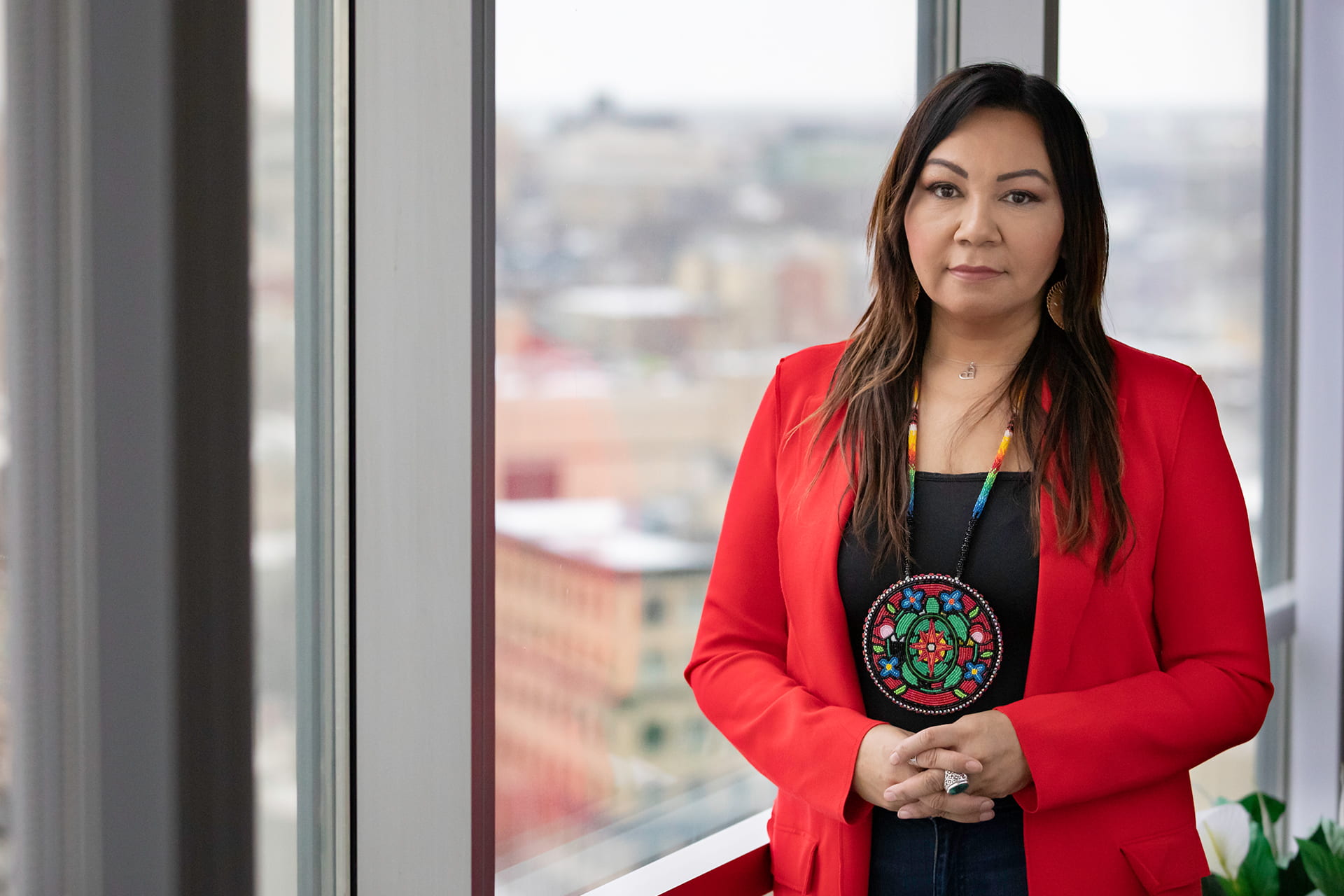Creative Communications grad coaches Manitoba’s businesses in diversity and inclusion
Sheila North says tapping into her natural talents has been the key to a successful decades-long career in communications and governance.
“I always tell students, ‘Keep in focus the natural abilities you have. Those are hints and clues of the things you’ll be good at that will utilize those gifts.’”
For North, those talents include creative writing and storytelling.
A 2006 graduate of Red River College’s Creative Communications program, North spent the first nine years of her career in television working as an award-winning journalist and correspondent for CBC and CTV, where she reported on issues including missing and murdered Indigenous women and girls (MMIWG) and residential school survivors. She also worked as Chief Communications Officer at the Assembly for Manitoba Chiefs.
It was then that her career trajectory changed.
In September 2015, North was elected as the first female Grand Chief of Manitoba Keewatinowi Okimakanak (MKO). Although becoming a leader wasn’t her original plan, she felt called by her community to step up and take on the role.
She also quickly realized the skills she’d acquired as both a College student and journalist — researching, presenting, media relations, writing and analyzing — were instrumental in her role as Grand Chief.
“I did interviews almost daily as Grand Chief. I had to be able to assess questions coming in and be prepared with the best information on hand to make the most informed comments. That sometimes meant quickly reading, analyzing and understanding documents and budgets,” says North.
“I value my education and work experience because it boded well for what I have to do. Juggling different personalities at once is also something I learned. I had to be accommodating and respectful at all times.”
Following three years in MKO leadership, North spent a year helping to incorporate Indigenous perspectives and knowledge into programming at the University College of the North’s new Centre for Indigenous Community Development. There, she worked on a team to create a proposal that responded to the needs of First Nations with a perspective from the north.

Today, North is the Director of Strategic Partnerships at Legacy Bowes, where she works to create relationships with Indigenous communities and help improve community development. She is responsible for building strong business relationships with clients and helping to analyze current industry trends.
She also works to identify business opportunities that will generate revenue resources and profitability for the company. She is currently completing courses in both political science and business administration at the University of Winnipeg to complement her previous education and work.
Looking back on the impressive span of her career, it’s easy to see how North heeded her own advice of focusing on her natural abilities and allowing them to propel her down the right path.
It’s those abilities, paired with passion, that drive North forward. For years, she has been a dedicated spokesperson for the Indigenous community and a fierce advocate for MMIWG. (She is even credited with creating the #MMIW hashtag on social media.)
In 2012, she harnessed her media expertise to raise awareness for the Idle No More movement as a communications specialist for leaders behind the cause.
Along with Leonard Yakir, she co-produced the documentary 1200+, which explores the critical issue of missing and murdered Indigenous women and girls in Canada, and how it impacts communities across the country.
North believes her willingness to speak up, take on new roles and bring attention to important issues has allowed her to grow professionally.
“It’s given me a better and more well-rounded perspective on the world around us,” she says. “I’m always looking to build a better future that’s free from racism and to end violence against women. I’ve been able to contribute to this with all my roles.”
Her advice for prospective students or alumni considering returning to RRC to refresh their skills is simple:
“Be prepared to work hard to invest in a better future for yourself. You’ll reap the benefits eventually if you invest time in your education in a real and impactful way.”
Profile by Riley Chervinski (Creative Communications, 2016)
Steps for Career Success
Discover more of our alumni blueprints for career success and get the tools to help plan your next career move.
LEARN MORE
